While many people enjoy the warmth of a fireplace, purchasing large amounts of firewood is very expensive.
You can avoid most of these expenses by harvesting firewood using a hatchet.
Still, you’ll need skills to use a hatchet for chopping wood.
Moreover, it would help if you had the proper hatchet depending on the style of wood harvesting.
This guide is about wood harvesting and the best hatchets for this purpose.
Why Split Wood with a Hatchet?
You want to generate more heat and light in the fireplace without using a lot of firewood.
Also, firewood can burn better when most of its surface is exposed to the burning fire.
Typically, when you spill firewood using a hatchet, you end up with smaller pieces with sharp corners.
Each piece contributes to the surface area of the wood you started with.
Also, a hatchet enables you to expose the heartwood, which has resin. Resins are highly flammable and help boost flame, heat, and light.

(A hatchet for chopping wood)
What to Consider When Choosing an Axe
Type
There are several types of axes in the market today. Generally, a splitting axe has a large and heavy head made from steel.
It has a sharp-edged blade and can split wood that strikes decisively.
The splitting axes have a flat side that can function as a hammer.
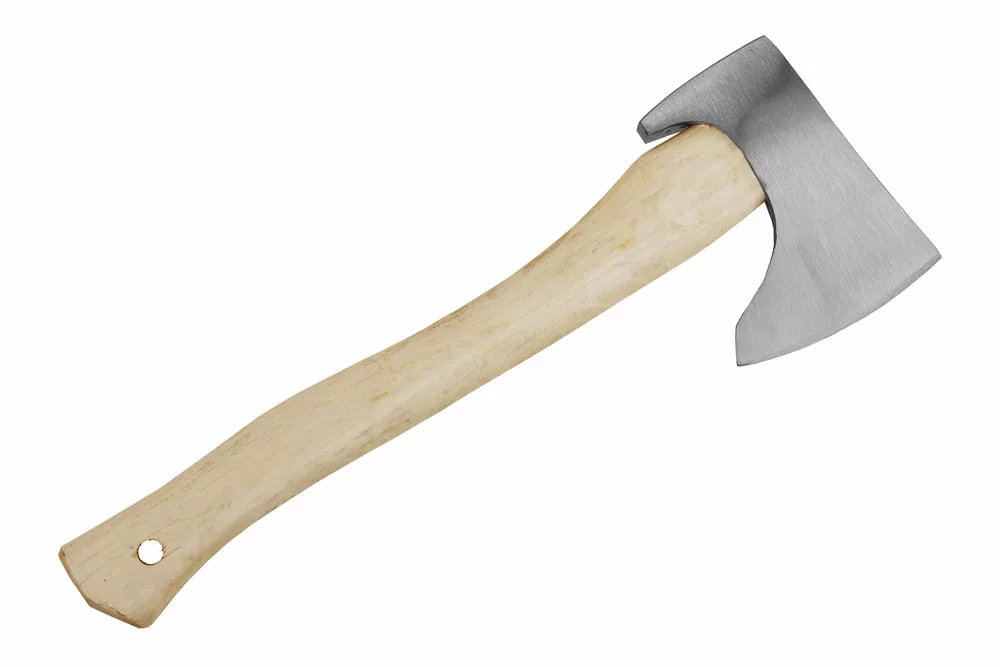
( A splitting axe with a heavy head)
Also, there are edge-shaped splitting mauls with a sledgehammer-shaped backside.
The blade side is good for splitting the wood, although a narrow steel wedge can increase its splitting power for larger wood.
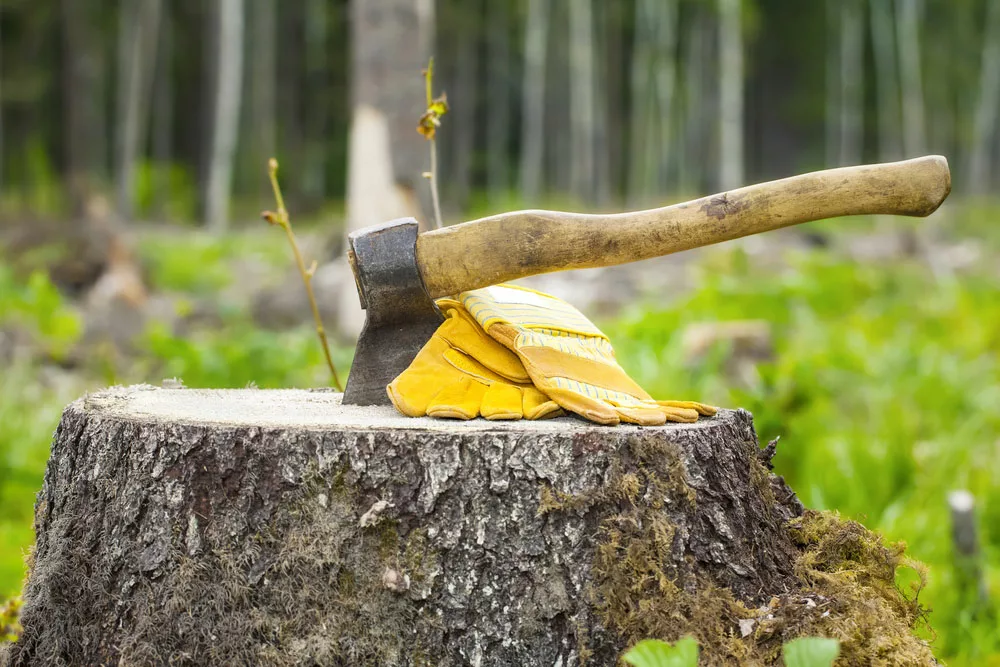
( A splitting maul)
Axe Handle
Hardwood: Notably, wooden handles are lightweight. Also, they can absorb shock.
However, the wooden handle weakens over time and may be an extra repair cost.
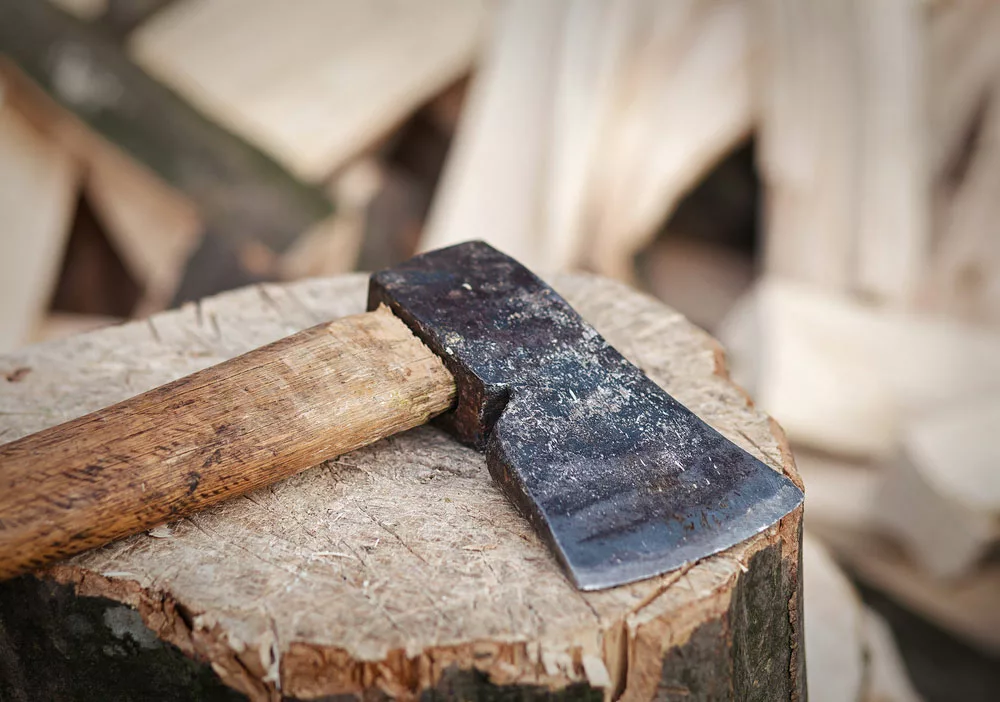
( an axe with a wooden handle)
Fiberglass composite: The fiberglass handles absorb part of the shock, and you feel good when using them.
However, it would be best if you were keen as these handles can shutter in freezing temperatures.
Additionally, they break when one hits the target with the shaft rather than the head.
Steel: The axe handles are the most durable and reliable when splitting extensive wood.
They have rubber covers to make them more manageable. However, they do not absorb shock; hence hands fatigue more quickly.
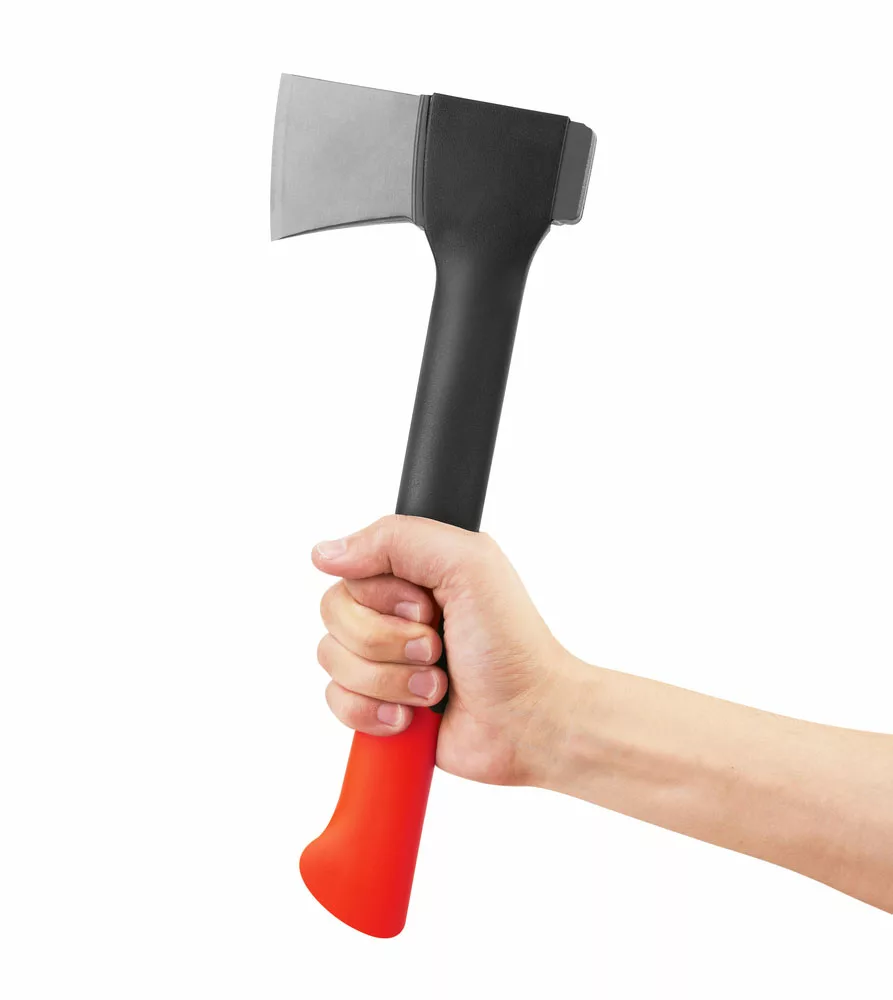
( a hatchet with a metallic handle covered with rubber)
Length
The length of an axe determines its power. Longer handles generate more power and velocity.
However, hitting targets precisely with a long handle could be challenging.
We recommend an axe with a short handle if you split wood with one hand.
Weight
Usually, axes with heavy heads generate more power.
However, find an axe you can lift because it is difficult to aim when it is too heavy.
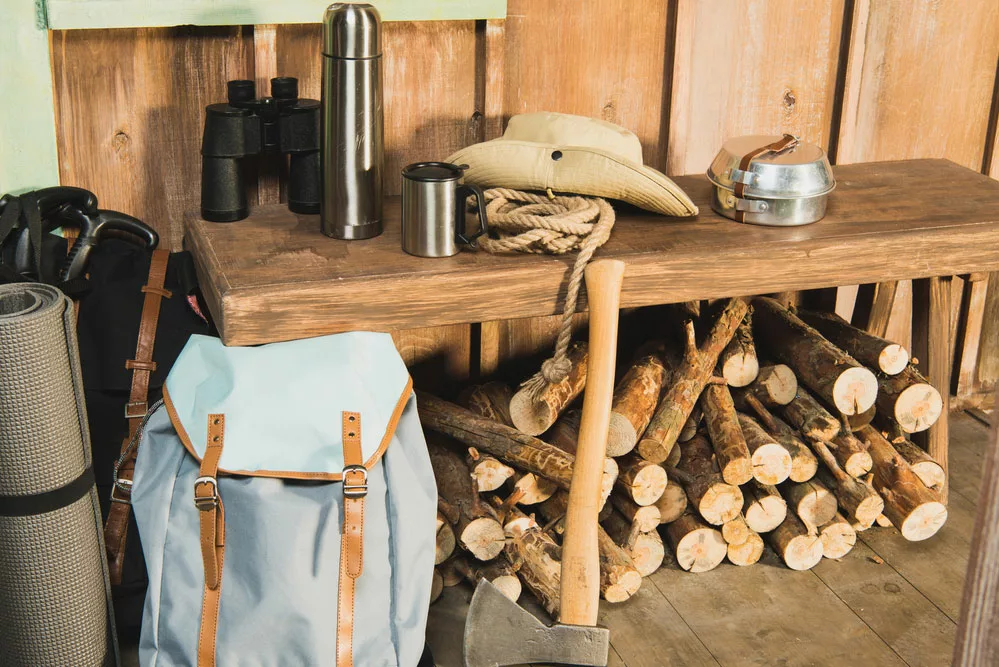
(A heavier axe)
The Best hatchet for chopping wood
An excellent hatchet should be sharp enough to chop wood without consuming much of your effort:
Fiskars 378501-1002 X7
The axe weighs only 1.4 pounds.
It’s perfect for chopping small to medium-sized logs.
Have a good power-to-weight ratio.
It’s with a proprietary blade-grinding technique that offers a sharper edge for cleaner cuts.
It has a coated low-friction blade that prevents it from sticking to the wood.
Estwing Sportsman’s
We recommend the Estwing Sportsman’s Axe for those looking for a highly durable hatchet.
It’s designed for outdoor versatility and is perfect for small trees, branches, or logs.
It comes with a heavy-duty sheath for protecting sharp edges.
You’ll experience a genuine leather grip while using this hatchet.
Fiskars X17 23.5-Inch
The X17 23.5-inch hatchet is perfect for small to medium-sized logs.
Also, it offers an excellent power-to-weight ratio.
With this hatchet, you can split your wood with a single strike.
The blade is designed with an advanced bevel convex geometry to remove easily from the wood.
You’ll get a lifetime warranty for purchasing it.
Lexicon V28s
Gives a one-strike split thanks to aggressive and optimized blade angles.
It features grade-A carbon steel with hardened edges to offer a cleaner cut.
With its perfect weight distribution, you can only expect a long-lasting performance.
The hatchet’s high safety thanks to the blade edge guard and protective carrying sheath.
Wilks Chopping Axe
You can use it for chopping branches, kindling, firewood, or logs.
It has a forged carbon steel blade for high durability.
Reviewers who have used this hatchet stated that it offers an anti-slip and shock-absorbing grip.
Furthermore, the blades are resharpenable for efficient use.
Finally, it comes with a protective safety cover.
Hatchet Splitting Techniques
Splitting wood using a hatchet isn’t a walk in the park. You need the right techniques for efficiency and safety. Below are the splitting techniques to consider:
Selecting a perfect wood
Splitting logs is an art and is something you can perfect with time.
Start your training by working on light and dry logs. Try working on tough wood.
However, tough wood will require a heavier and sharp hatchet.
Standard stump splitting
To split your logs effectively, we recommend having them on a flat surface. It is where splitting stumps come in. When choosing a stump, go for a flat and taller one.
Upright bash
With this option, ensure the hatchet gets stuck in the wood. You can then lift them together and hit them against a stump. You’ll be surprised that even the most rigid wood will be split this way.
Upside-down bash
This is somehow similar to the upright bash above. However, in this case, your hands are on the log, not the hatchet. With the hatchet stuck in the wood, they hit it against a stump.
Batoning
Unlike upright and upside-down bash, batoning doesn’t involve hitting the hatchet against the wood.
Instead, you position your hatchet where you want to split. You then strike the hatchet with strong wood.
Parallel splitting
This technique is proper when you’re splitting relatively wide logs.
In this case, set the hatchet’s blade into the wood. Proceed to swing them together against a stump and drive the hatchet through.
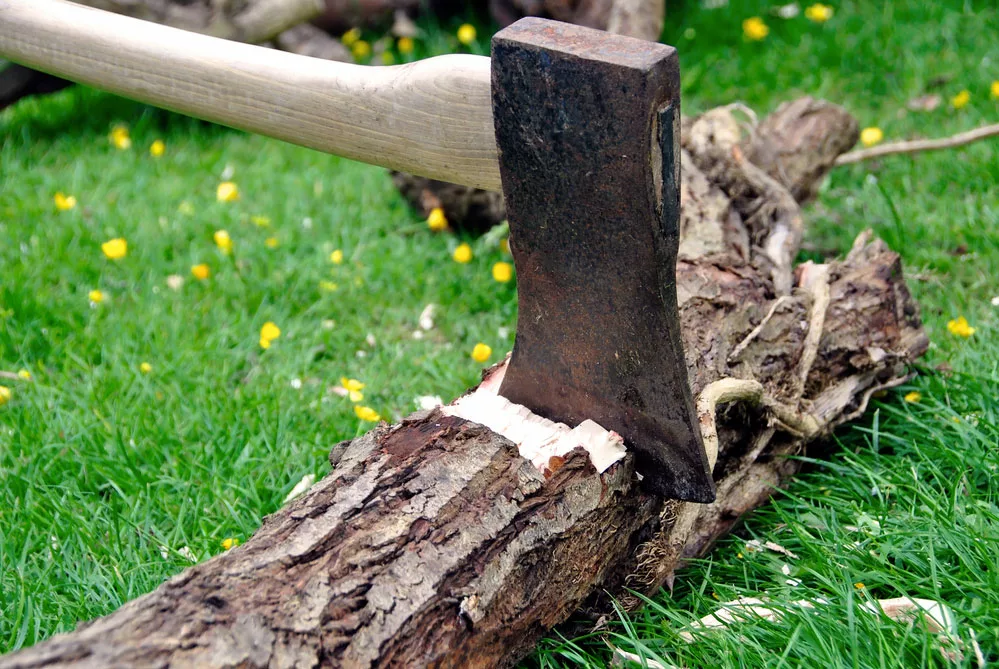
(An axe was on the wood)
Summary
Everything becomes easier and safer with the right skills and hatchet for chopping wood. As mentioned, each hatchet type is unique and perfect for a specific task.
Follow our guide for an efficient wood-chopping exercise. Nothing should stop you from having warm nights.
